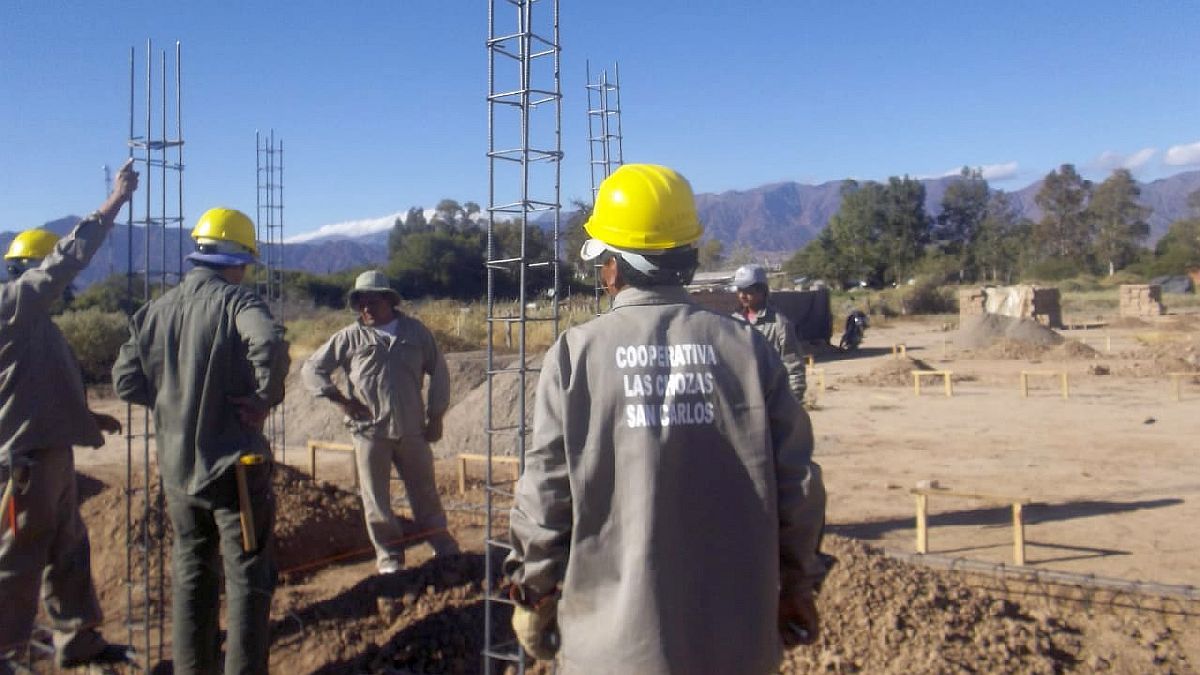For this matter, President Alberto Fernández received in his office at the Casa Rosada the Chief of Staff, Juan Manzur; the Minister of Economy, Sergio Massa, and the Ministers of Labor, Raquel “Kelly” Olmos, and of Social Development, Victoria Tolosa Paz, and he signed the decree.
Decree 728/2022 also instructs the National Procurement Office to include in the general terms and conditions specifications, a margin of preference for bidders who prove a minimum of 5% of workers linked to the “Bridge to Employment” Program. “. And it grants in favor of the Work Cooperatives of the Popular Economy 30% of the National Public Works with amounts of up to 300 million pesos, under the corresponding contracting modality.
Likewise, it instructs the Ministries of Social Development, Labor and Economy to designate their representatives in the Council of the Popular Economy and the Complementary Social Salary (Cepssc), created by Law 27,345 of Public Emergency, within a term no more than 60 days. The purpose of this law is to promote and defend, throughout the national territory, the rights of workers who work in the Popular Economy, with a view to guaranteeing them access to decent housing, adequate food, education, clothing, medical coverage, transportation and recreation, vacations and pension protection, among other rights.
It also summons the organizations registered in the Register of Workers’ Associations of the Popular Economy and Basic Subsistence to designate the representatives that will integrate the aforementioned Council.
Cepssc’s mission is to promote a “Agenda for the Institutionalization and Development of the Popular Economy”with the objectives of productive strengthening, formalization of workers, and promotion of access to credit and state purchase for the undertakings of the Popular Economy.
Among the recitals of the decree it is stated that “It is a priority of the national government to promote work in its various forms and access to social security rights by the social sectors with the highest degree of economic and social vulnerability.”
And it expresses that “it is essential for the National Government to promote policies that generate genuine employment, for which it is necessary to adopt measures to address and prevent labor vulnerability, whose most visible consequences are, among others, indigence, poverty and social exclusion. “.
It also recalls that “the International Labor Organization (ILO), in its Resolution II of June 10, 2022, has highlighted that members should, taking into account national circumstances, among other issues, take into account the contribution of the Economy Social and Solidarity (ESS) to the achievement of decent work, the inclusive and sustainable economy, social justice, sustainable development and the improvement of living standards for all”.
After the meeting, Tolosa Paz said at a press conference that the decree “puts a ceiling on the people of Empower Work”which is 1,350,000 beneficiaries, and pointed out that “it was done in agreement with the social movements.”
The official indicated that the ministry in charge of her is going to redistribute the amounts of casualties, about 10,000 monthly, “in the acquisition of machines and tools for the production of goods and services” for the recipients of the plan, or also “with an offer education and job training.
He also acknowledged that there is the possibility of granting “a reinforcement” in the Universal Child Allowance (AUH) and in the Food Card for the end of the year, something that “It is studied jointly in the Ministries of Social Development and Labor and in Anses.”
In another order, Tolosa Paz said that “food” will be guaranteed for the population below the indigence line, “to respond” to a sector that “in the last semester rose from 8.2% to 8.8 %”, in addition to carrying out “works in indigent homes”.
Meanwhile, Olmos stated that for job creation “a dialogue mechanism with the production chains will be worked on to identify unsatisfied demand,” with “instruments that we have, such as training, training and subsidies, either through part of the salary as in the deduction of labor contributions”.
On the other hand, the Minister of Labor announced that the Salary Council will be convened for the second half of this month.
Source: Ambito
David William is a talented author who has made a name for himself in the world of writing. He is a professional author who writes on a wide range of topics, from general interest to opinion news. David is currently working as a writer at 24 hours worlds where he brings his unique perspective and in-depth research to his articles, making them both informative and engaging.




